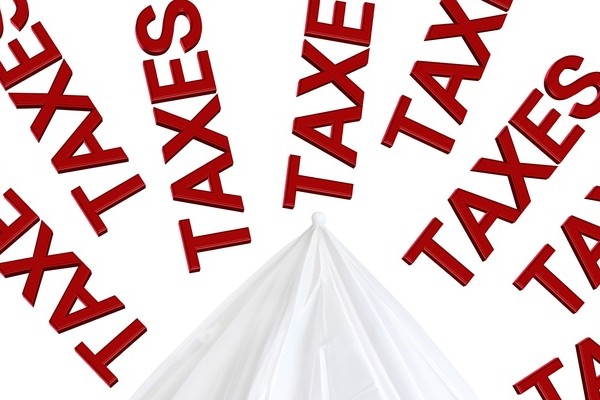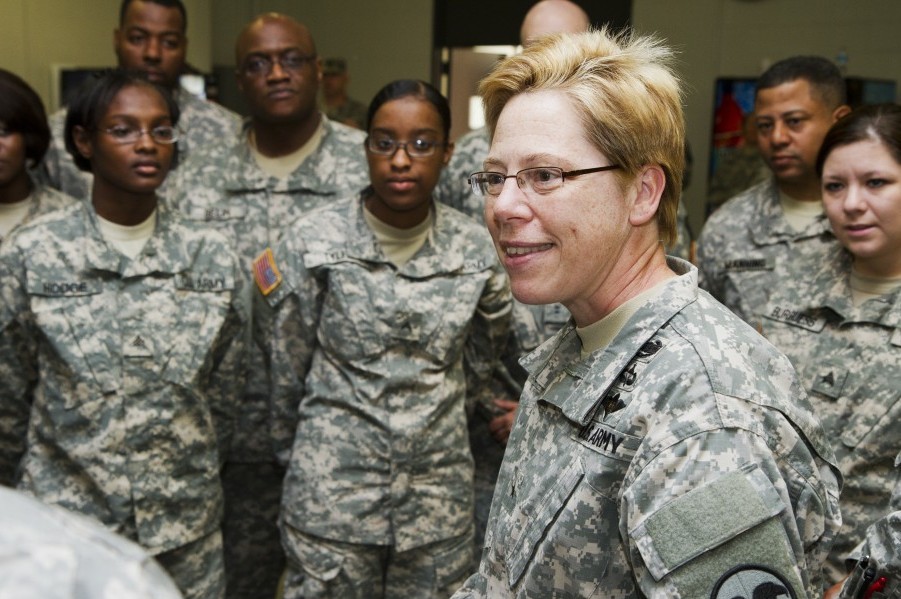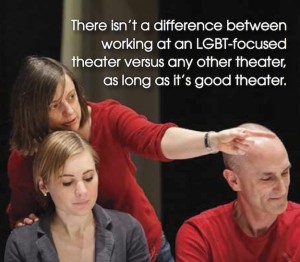

First of all, if you haven’t seen the play “8” by Dustin Lance Black, you need to get on that. That was my first thought when I read about Rainbow Theatre Project, an organization devoted to showcasing our lives as queer people. In addition to doing their essential musicals and fictional plays, it would be thrilling to see a theatrical performance of events that have recently transpired socially, politically, and legally for LGBT people. For those of us in Washington, D.C. who aren’t political junkies, it would be refreshing to learn about how our community moves toward equality through the medium of performance rather than the news. Delia Taylor, a Director at Rainbow Theatre Project agrees, and feels we also need more humor and satire to balance our community’s stories of struggle. Good things are happening for the LGBT community too, and we should celebrate that!

Delia Taylor with Andra Belknap and Frank Bliss — Photo by Jonathan Timmes
Social relevance is an important aspect to Taylor when it comes to theater. Although she “doesn’t often long to act anymore,” she’s never played a lesbian role on stage and says she would enjoy that. She wishes there was more material like Caryl Churchill’s “Cloud 9” which challenges expectations of gender and race by casting men in women’s roles and vice versa, as well as white performers in African-American roles. To an extent, Taylor sees theater and art as an analogy to religion.
“I think it’s true for a lot of people actually that art lends meaning to life and the performing arts are what speaks to me about the human experience,” she says. “I envy people who have faith in something intangible. . .but there’s something intangible about the arts.”
Taylor also directs because she loves to watch people grow and make discoveries about themselves, gain confidence, and be more expressive. It’s thrilling for her to see talent blossom. Taylor also works at Theater J as an Associate Producer.
“There isn’t a difference between working at an LGBT-focused theater versus any other theater, as long as it’s good theater,” says Taylor.
The difference is in the mission of the organization and that’s what makes Rainbow Theatre Project special. In our mainstream culture, the stories on T.V., in movie theaters, and in music dominantly showcase traditional heterosexual characters played or performed by straight celebrities (or at least ones that haven’t come out yet, am I right Ellen Page?). As a queer person, I’m surprised and excited to see relatable stories in entertainment either because the performers play queer characters or because they are out in their everyday lives; this is what Rainbow Theatre Project brings to our community.